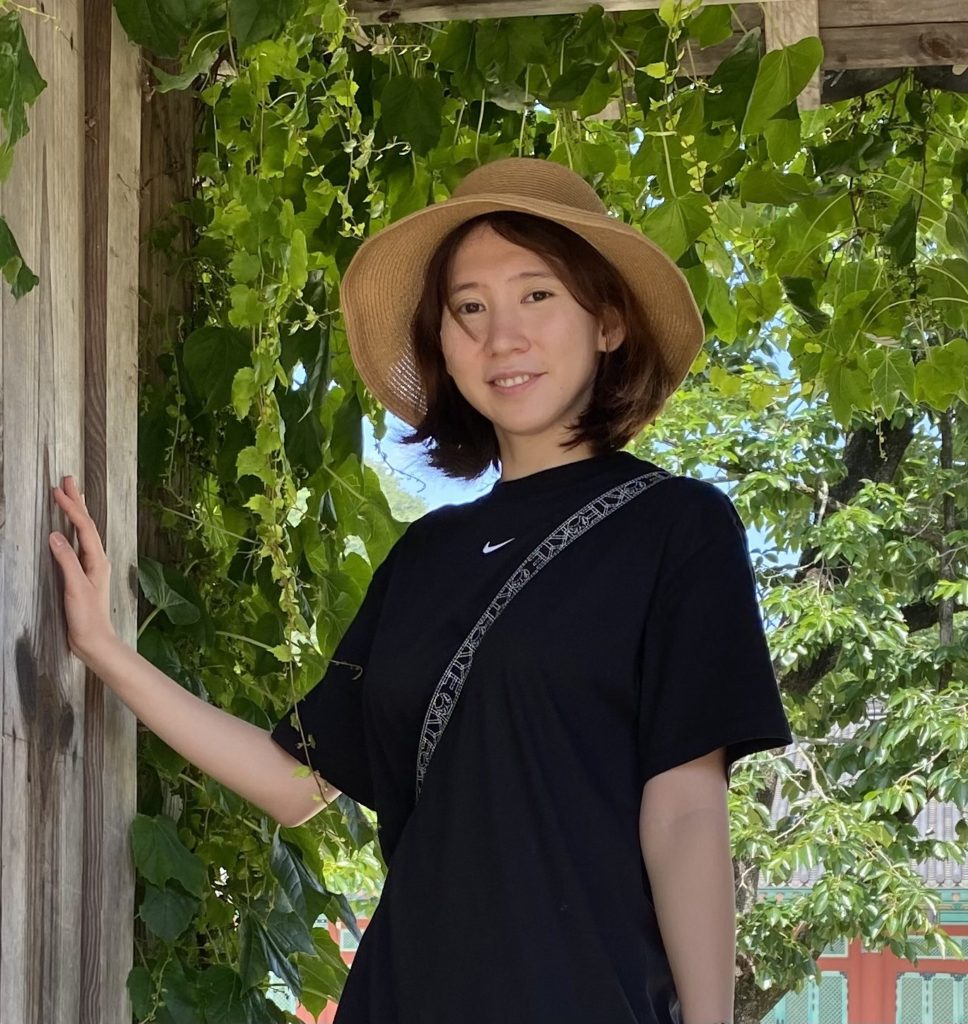KONA Volunteer Teaching
English Through Storybooks.
Complied by William Urbanski.
The KONA Storybook Center is a UNESCO-associated volunteer organization in Gwangju that promotes cultural exchange and English learning through storybooks. While most people in Korea are familiar with the ubiquitous English academies and myriad language exchange programs, something I feel what distinguishes KONA (Korean Organization of the Natural Approach) is its volunteer base: English speakers from all over the world.
During these challenging times in which face-to-face meetings are not always possible, KONA volunteers want to share their stories about how they have been continuing their efforts to connect with young English learners. The following three stories are the first of a two-part feature highlighting the excellent and ongoing efforts of KONA to provide an alternate educational framework for young students.
Volunteering in the COVID-19 Period
— Nayan Das, Bangladesh

The year 2020 was not just another year. We have been experiencing something that we never expected, even in our wildest imagination. People are killing people based on color and religion. Humanity is missing in humans. Moreover, at the beginning of 2020, COVID-19 broke out all over the world. Thousands of people have died and are still dying today; people are confused and frustrated. The whole world is going crazy. Reality is so brutal. There is negativity everywhere. We are living in tough times. As individual human beings, we are so helpless. But as they say, tough times teach us how to be strong and look for opportunities. Individually, we may be weak, but together we can achieve our dreams. By contributing what we have through volunteering, we can help each other to achieve our dreams.
It has been almost five years since I began volunteering at KONA. As a KONA volunteer, we participated at the Daein Night Market, Gwangju Children’s Home, and Gwangju International Community Day. But this year, because of COVID-19, our usual daily life has been destroyed. Now we are trying to adjust our lives to this pandemic era. We came to know lots of new English terms such as lockdown and social distancing. Wearing masks became the new normal to keep ourselves as well as others safe. Lockdowns and restrictions on social gathering show us how much of a social creature we are and how much we need human interaction to function as a society. Learning the value of social interaction, all daily social activities moved from offline to online, including schooling, meetings, and conferences. As a volunteering organization, KONA has also moved from offline to online.
Online volunteering was a new experience. In the beginning, I was skeptical about online volunteering, but soon, all my doubts dissipated, and I got used to the system. Except for some technical challenges, I realized the opportunities that online volunteering brought. It saves me commute time from GIST (where I am a doctoral program student) to the volunteering center. Another special opportunity that online volunteering brought us was that anyone could join from any part of the world. A year ago, two of our dedicated volunteers, Dr. Shilpa Rani (India) and Kevan Hudson (Canada), left South Korea. I never thought that I would see those beautiful souls again, but with online volunteering, we have been able to get connected again. I am happy to see them joining our online volunteering activities. It is amazing to see Adhrit (the son of Dr. Rani) growing with the organization. At 6:00 a.m. (Indian time), the mother and son participate in the KONA volunteering program with Korean kids and their families. We share our culture and read books online. We also read the biographies of famous people all around the world. We do yoga and meditation also. It is a wonderful feeling to be able to spend time with other smiling faces. At the end of the program, we share our experiences and suggestions of how we might make the program better next time.
All these online KONA volunteering successes have come to reality because of the dreams and efforts of Prof. Young-im Kim, who is working so tirelessly to reach out to the kids and their families in every possible way. She is such an inspiration for all of us. She shows us that together we can overcome any situation no matter how tough it is. Finally, I would like to thank Prof. Young-im Kim for allowing me to be a part of the KONA volunteering organization, enabling me to have valuable experiences in my life.
My Online KONA Volunteering Experiences
— Matkhiya Usmonova, Uzbekistan

These unprecedented times due to the COVID-19 pandemic have changed the everyday lives of people. It is clear that in Korea, we are all struggling for survival in an unseen and unknown situation. In order to limit the spread of the contagion, we have to follow social-distancing norms. Cities around the world are imposing lockdowns and restrictions to curtail the free movement of citizens. Schools are promoting online education, and organizations are encouraging employees to work from home. Before COVID-19, I could attend my Chonnam National University classes, travel around Korea, and do volunteering. But after COVID intervened, my life started to be boring, and I suffered from negative thoughts by staying in the same place. In order to prevent this, I wanted to do something useful but did not know what to do.
Suddenly, Prof. Kim Young-im, who is the founder of Gwangju’s KONA Storybook Center, informed me of how to volunteer online. Frankly speaking, KONA Storybook Center, founded in 2004, is a small research center that supports UNESCO-KONA Volunteers. Its goal is to help disadvantaged children learn English independently through storybooks and story maps. It also helps families and kids to increase their love of reading storybooks in English. Online volunteering was good news for us because it was a great chance to give our time and use our skills and passion to make a difference in young, disadvantaged students’ lives. In this article, I would like to share my great virtual experiences at KONA Storybook Center, which have enriched me and been valuable in the development of my career, lifestyle, and personality. I think discussing my experiences will help others understand the value of volunteering, especially in our modern age.
I did my volunteer work through Zoom, where I could see the faces of children and other volunteers. My volunteering days were every first and fourth Saturday of the month, from 11:00 a.m. to 12:00 p.m. I was not the only one, as there are also some Korean families and foreign volunteers, such as Nayan (Bangladesh), Kevan Hudson and Tom Wyatt (Canada), Shilpa Rani (India), Erva Ozkan (Turkey), and Haru (Kazakhstan), who are very outgoing and love working with children. They gave me a nice impression in terms of getting on well with English learners.
There were over ten children full of interest in learning the English language. They know how to read, write, and make story maps, as well as speak in English. Our job was to help them to achieve their respective goals for the future. We read short English stories from the websites “Unite for Literacy Library” and “Little Fox.” By listening to short stories, children learned how to read and pronounce English words properly. I surmise that our readings helped them to inspire themselves in learning the English language. In addition to this, foreign volunteers introduced their country by making a presentation. To be precise, I presented Uzbekistan’s national symbols, traditional clothes and values, tourist attractions, and other things that grabbed the students’ attention. The presentations were given for 30 minutes per volunteer. Actually, I was really glad to introduce my country of Uzbekistan to KONA’s young learners, as it was one of my goals to introduce Uzbekistan to Koreans and foreigners as well. During my virtual volunteering, the host took screenshots of our happy faces and uploaded them to the KONA volunteering website, where members could see them and realize that they were doing a nice job.
To sum up, many disadvantaged children spent their valuable time studying English online with foreigners, and it has become one of their most precious moments during the period of the COVID-19 pandemic. When it comes to me, I am really thankful to Professor Kim Young-im for giving me such opportunities and experiences. These volunteering experiences – helping children learn English through English stories – have aided me in being more self-empowered in teaching and in my personal life. It is perhaps the most satisfying online experience to act for others rather than for ourselves during these most difficult times.
Sharing Kazakhstan’s Culture as a KONA Volunteer
— Gaukhar Akhmetzhanova, Kazakhstan

I was reading the Gwangju News while waiting for the IELTS speaking test examiner to call my name. In the magazine, there was a notice about volunteering opportunities in town and one of them was at KONA Storybook Center. I wrote an email to the contact address and waited. The thing is that it was my second year in Korea, and I was thinking about volunteering because I wanted somehow to be of service and give back to the community.
I remember the first day when I walked into the center. Prof. Kim Young-im welcomed me with the kindest smile, and so did Tiana, a volunteer from the UK, who walked me through the basics and the overall process of how things were done. With this, I took my first humble steps into the world of volunteering. The reason why I decided to join KONA is that I sympathized with its mission: to teach English through reading books. I learned and mastered English while reading. In my opinion, books are the depository of knowledge, with naturally learning language hidden within. So, needless to say, one not only acquires knowledge but also acquires language through reading.
Prof. Kim Young-im, the founder of KONA, created her methods of teaching English to children through reading books, drawing story maps, and many more activities. Her methods are so effective because you can see how dramatically students improve their English abilities in a short period of time. Apart from learning, students also broaden their world views by interacting with foreign volunteers. This is truly a beautiful synergy, as the students are learning about other cultures, they are also teaching Korean and sharing their own culture, which trains them to have a certain degree of responsibility. By doing this, they gain confidence and start tutoring new students. It is impressive to see how a senior student who started this journey several months ago starts to coach new students. This happens so naturally and strengthens students’ independent learning skills, leadership, and empathy through coaching, which is not usually present in conventional teaching methods.
This year, I was volunteering for KONA Vision Talk, the event in which foreign volunteers present their country’s culture and history followed by a discussion. It was such a unique opportunity to share Kazakhstan’s culture with Korean students. I realized that there is a shortage of information about Kazakhstan available in Korean, so I was motivated to research Korean culture in order to reflect on my culture. In addition, I was learning the Korean language in order to establish a deep connection with students and inspire them to embrace another culture. Due to the worldwide pandemic situation, all meetings were conducted online through Zoom. Presenting online is challenging since one can feel the lack of sincerity and human interaction, but I did my best to engage with students, even though it was through a screen. As always, I learned a lot about Korean culture and from students while at the same time sharing Kazakhstan’s culture in the spirit of mutual understanding.
I am so grateful to all of the KONA members who shared their dreams and allowed me to learn together with them. Teaching is not easy – it is an act of service for others, and we should learn how to teach before doing it. Prof. Kim Young-im is truly an inspiration since she shared her teaching methods and empowered me to give back to the community. It is an honor for me to be part of the KONA family, which values curiosity, inspiration, and cross-cultural understanding.
We will be bringing you more KONA volunteering experiences in our next issue of the Gwangju News. — William Urbanski, managing editor.




